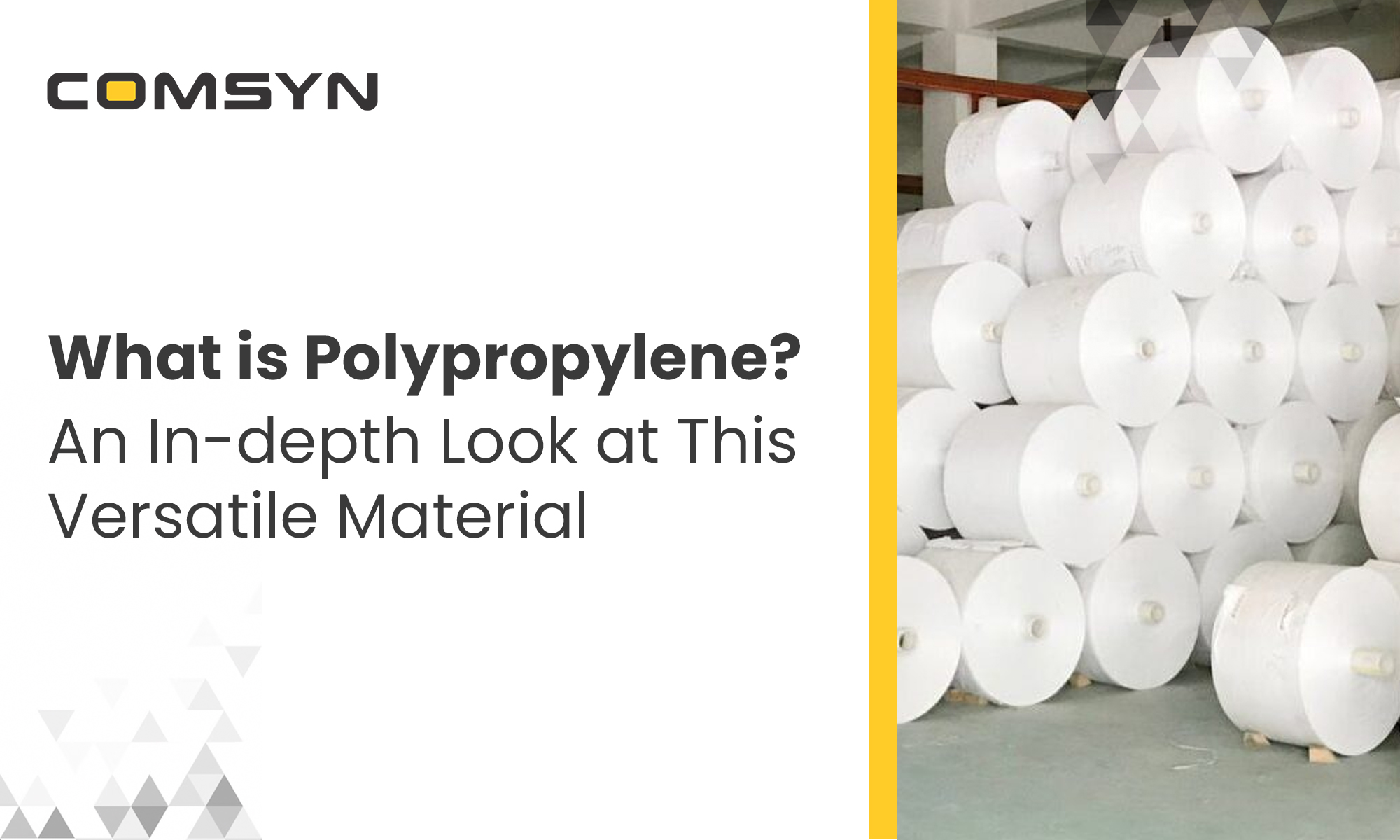The manufacturing process of PP woven bags involves several complicated steps that help in making the final product have the necessary quality and durability. Let us take an overview in this article of the PP woven bag manufacturing process and take a broad look at the chemical composition of polypropylene and what has made its popularity in the market quite high. This blog also talks about how Comsyn manufactures quality PP Woven Bags, that meet the needs of versatile markets. Polypropylene is a thermoplastic polymer with infinite applications, ranging chemically in production terms from units to propylene monomers. Therefore, it has a high melting point, great chemical resistance, and is lightweight. All those characteristics make polypropylene suitable for the manufacture of many items, among them polypropylene woven bags. The reason polypropylene is a favored choice in the packaging industry for manufacturing lies in long-lasting and reusable bag quality along with its ability to stand wear and tear at relatively low costs. This has made polypropylene emerge as one of the leading raw material products in the manufacture of products known as PP woven bags, which spin into threads and weave into flexibly resilient fabrics. One of the striking features of polypropylene is its waterproof material for bags, finding use in the production of waterproof bags. These water-resistant properties also come in at various levels to maintain the dryness and safety of the commodities in the bag. Thus, the PP woven bags find huge applications in the agricultural sector for storing and transporting grains, seeds, and other products that might be moisture-sensitive. Polypropylene is a versatile thermoplastic polymer known for its durability, chemical resistance, and lightweight properties, making it a popular choice across a range of industries. Its adaptability allows manufacturers to mold it into a variety of products that withstand everyday wear and high temperatures, contributing to its extensive use in both consumer and industrial applications. Medical Applications: Utilized in manufacturing syringes, medical devices, and laboratory equipment. Better than other traditionally waterproof materials for bags —for example, PVC and nylon—polypropylene is lighter, most cost-effective, and easy to recycle. Therefore, it is much more sustainable for companies striving not only to be environmentally friendly but to have it as their effective policy. Moreover, the manufacturing of PP woven bags can be done on a customized basis, whereby these bag manufacturers can provide bags in any size, shape, and colour according to market requirements. Polycarbonate and polypropylene are both popular thermoplastics, but they differ significantly in their properties and applications. Polycarbonate is renowned for its high impact resistance, optical clarity, and rigidity, making it ideal for products that require transparency and strength. In contrast, polypropylene is valued for its chemical resistance, flexibility, and lightweight nature, which lends itself well to the mass production of durable yet cost-effective items. Each material is selected based on the specific demands of the application, with polycarbonate typically used where durability and clarity are critical, and polypropylene favored for everyday consumer goods and industrial parts. Polypropylene is just one such versatile and reliable material with a wide range of uses and applications for waterproof bags. Its unique properties stand out in terms of durability and water resistance, besides being recyclable, which are specifically said to be ideal for application in the packaging industry. The production of PP woven bags uses all these properties of the material to turn out high-quality and durable bags for different sectors. Comsyn is the leading manufacturer in the market, manufacturing only top-grade PP woven bags that are trusted by businesses across the globe. The selection of polypropylene not only brings superiority to what businesses can get but also contributes to a more sustainable future in every way. Polypropylene is widely used in packaging, automotive parts, textiles, and a variety of consumer goods. Polypropylene is a plastic that is also processed into fibers for fabric applications. The choice depends on the application; PP offers lightweight chemical resistance, while PVC is valued for its durability and flexibility. Yes, polypropylene is FDA-approved and commonly used in food-safe packaging and containers.What is Polypropylene? An In-depth Look at This Versatile Material

Polypropylene has now become a cornerstone material for all industries because of its durability, flexibility, and cost-effectiveness in use. Among many uses, the packaging world has significantly benefited from polypropylene in creating PP woven bags, well known for their great strength, reusability, and resistance to environmental factors. Therefore, they stand good for use in various requirements, right from agricultural packaging to consumer goods.What is Polypropylene Material?
What Are the Common Uses of Polypropylene?
Comparison of Polypropylene with Other Traditional Waterproof Bag Materials
What Is The Difference Between Polycarbonate And Polypropylene?
Conclusion
FAQs
- About Us
- Products
- Markets Served
-
- Investor Relation
- Board Of Directors
- Committees Of Board
- Corporate Governance
- Financials
- Annual Report
- Key Managerial Positions
- Shareholding Pattern
- Notices
- Policies Programme
- Announcements
- Statement of Investor Complaints
- Unpaid & Unclaimed Dividend
- Prospectus
- Investors Contact
- Subsidiary Financials
- IEPF
- Preferential Issue – 2024
- MOA & AOA
- Integrated Filing
- Sustainability
- Contact Us
- TechTex
- Brochure

